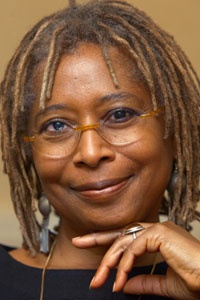As part of a series entitled ‘Universities in Crisis’ on the website of the International Sociological Association, Neve Gordon, a supporter of the campaign to exclude Israeli scholars from the international academic community, writes a report on the state of academic freedom in Israel.
Gordon, N, (2010) ‘An assault on israeli academic freedom – and liberal values’ Blog of the International Sociological Association (ISA), http://www.isa-sociology.org/universities-in-crisis/?p=559, downloaded 6 october 2010.
He describes a demonstration in which he took part on his campus at Ben-Gurion University in May 2010, which protested against the Israeli assault on the Mavi Marmara, the Turkish ship which was heading towards Gaza. He then describes a counter-protest the next day in which students demonstrated their support for the Israeli forces. ‘There were … shouts demanding my resignation’,

Neve Gordon
writes Gordon, and ‘one student even proceeded to create a Facebook group whose sole goal is to have me sacked.’ The Facebook page carried personal denunciations and death threats.
A right wing political group published a ‘report’ accusing sociology departments of being unpatriotic and left wing. The President of Tel Aviv University asked to see syllabi being taught at Tel Aviv University. A newspaper article reported that another right wing organisation had tried to persuade donors to Ben-Gurion University to make their giving conditional on an end to ‘anti-Zionist’teaching. The President of Ben-Gurion University publicly opposed this campaign as a threat to academic freedom but the Education Minister, a member of the right wing Likud party, writes Gordon, simply opposed this campaign on the basis that it was aimed at harming donations. ‘The problem is’, he concludes, ‘that instead of struggling over basic human rights, we are now struggling over the right to struggle.’
As is clear from the reports from other countries, these kinds of right wing campaigns against academic freedom, against the intellectual left and against disciplines such as sociology are far from unique to Israel. But antizionism as a political framework is always tempted to treat things which are done by the right in Israel as though they were manifestations of the essential racism and the essential illiberality of the ‘Zionist’ state.
Neve Gordon’s argument is that the phenomena he describes are manifestations of a much broader ‘protofascist’ asault against Higher Education and liberal values in Israel. He writes that this assault is being mobilized by ‘numerous forces in Israel’ and also by

David Hirsh
‘neoconservative forces in the United States’. He writes that this assault is targetted first against the universities because ‘they are home to many vocal critics of Israel’s rights-abusive policies’, voices which are considered ‘traitorous and consequently in need of being stifled’.
He writes that the right wing organisations see universities as ‘merely arms of the government’ and so politically controllable. He characterizes right wing colleagues as ‘a thought police’ and right wing students as ‘spies’. The ordinary but nevertheless worrying mobilisation of a right wing and anti-liberal political current is presented in the language and in the framework of Israeli exceptionalim.
This text exemplifies two tendencies which characterise much discussion of the Palestine-Israel conflict, of the campaign to boycott Israel and of contemporary antisemitism.
Firstly it is once removed from a discussion of the issues themselves. It is ‘struggling for the right to struggle’. In this text there is no discussion of the substantial issues themselves. Rather they are mobilized as weapons in the struggle over the boundaries of legitimate discourse. Issues which are raised but not discussed: Israeli human rights abuses; the assault on the ‘flotilla’; ‘anti-Zionism’, ‘post-Zionism’, ‘Zionism’; Israeli patriotism and unpatriotism; the proposed boycott of Israel and antisemitism; the connections between ‘protofascism’, the Israeli right, the American neocon right and the American Christian right. The issues are raised and mobilized rhetorically but not analysed.
The right wing groups of which Neve Gordon is correctly, in my view, wary, aim to define the left as being outside of the legitimate boundaries of Israeli discourse. Neve Gordon, on the other hand, aims to define those right wingers as being outside of the boundaries of liberal and antiracist discourse. Neither argues why the other is wrong on the substantial issues. Instead, both are ‘struggling’ to have the discourse of the other recognized as illegitimate.
This is not necessarily as bad as it sounds. For example it is normal that racism or homphobia or misogyny is recognized as being outside of the legitimate boundaries of sociolgoical discourse. Sociologists would not try to debate with a colleague who claimed that black people were inferior to white people. Historians would not try to debate with a colleague who said that the Atlantic slave trade never happened. We would argue, rather, that the questions were illegitimate.
We do not want to get into an apparently rational discussion with racists over racist questions. We do not want to treat racists as though they were one side of a legitimate debate. If there were serious people who began to ask these questions, if the questions became legitimate in the public sphere, in spite of our efforts to prevent that, then we might still have to debate, to mobilise the reasoning and the evidence against racism.
The second tendency which Gordon’s text exemplifies is that towards the conflation of, and the slippage between distinct phenomena. For example he mentions that Alan Dershowitz argued that Israeli professors who support the campaign for their Israeli colleagues to be excluded from the global academic community should themselves resign from Israeli academic institutions as part of this ‘boycott’. He also mentions that some students at the protest were calling for his resignation. And he conflates these calls for resignation, made by people with no power to fire anybody, with a call upon universities to carry out a purge of ‘leftist’ faculty. In a discussion of academic freedom this distinction may be thought to be important, yet one phenomenon is piled on top of the other in order to give the whole greater rhetorical weight.
Gordon says that people want to sack him because he is critical of Israeli human rights abuses. Some of his opponents say they want him to resign because he agitates for a boycott of his colleagues in Israel academia. Sacking is not the same as a call for resignation. Criticism is not the same as a call for boycott.
Instead of rebutting Dershowitz’s argument about the academic boycott Neve Gordon characterizes it as being outside of the boundaries of what is legitimate in a university. In return, Dershowitz characterizes Gordon’s pro-boycott stance as being outside of what is legitimate in a university. Either position may be right or wrong, but Gordon doesn’t make an argument here. Instead he relies on the conflation of criticism with boycott and on the conflation of a call for resignation with a sacking. In both cases speech acts are conflated with acts of exclusion by power. It may be his case that the speech acts feed into a discourse whose logic is then concrete exclusion. But then again, the case has to be argued and the mechanisms analysed.
There is another more subtle conflation here. The very name ‘Alan M. Dershowitz’ has become a synecdoche for something bigger than the flesh and blood individual who is its apparent referent. The name ‘Alan M. Dershowitz’ connotes the fearsome power of the ‘Israel lobby’ (was he not the man who single-handedly prevented Norman Finkelstein from winning tenure?), it connotes all that is threatening about the neocon agenda (has he not written a lawyerly defence of torture?), it connotes all the lies of the ‘Zionists’ (has he not written ‘the case for Israel?’). The name ‘Dershowitz’ stands symbolically amongst Gordon’s imagined audience, for the whole of ‘Zionism’, which itself is understood as a racist and totalitarian movement of global influence and notoriety.
Neve Gordon’s political project is to have Israel recognized as an apartheid state, to make it into a pariah, to position Israel itself outside of the boundaries of legitimate countries. The terminology he employs in this piece, ‘protofascist’, ‘thought police’, ‘spies’ is not justified by the evidence he presents.
What he presents is bad enough and it is familiar to academics all over the world. He shows that there are right wing individuals and groups who wish to position sociology outside of the boundaries of legitimate scholarly inquiry. He is aware that right wing parties sometimes win elections and form governments. These are real threats to academic freedom which we should take seriously and which we should oppose. But Gordon is also clear that for the moment at least, the university sector in Israel is bravely and successfully defending itself, and the institutions are not bending to the pressure.
But for Israel-boycotters, Israel comes first, it is the one state whose academics should be excluded, it is the state moving towards fascism. And it may or may not be. But his anecdotes do not make the case. This is less a debate and more a struggle over what is, and what is not to be legitimately debated. There is a tendency for reason and evidence to take second place to rhetoric, conflation and keywords which communicate unspoken and emotional connotation.
Neve Gordon’s position tends to mirror that against which he is struggling. He is against those who would have him silenced but he is for his Israeli colleagues being silenced in the global scholarly community. He is for his own right to free speech and academic freedom but he refers to his right wing colleagues as ‘thought police’ when they use their free speech to criticize him and their academic freedom to oppose his views. He opposes the right wing tendency to see Israeli universities as ‘merely arms of the government’ and he shows how the universities are successfully defending their own independence from government. Yet then how can he argue that Israeli universities should be boycotted because they are complicit with the crimes of the Israeli government?
Neve Gordon says that things are so bad in Israeli universities that he receives death threats and calls for his sacking. He says that things are so bad that he and his colleagues are using g-mail instead of university email addresses for fear that a hostile university administration might open their emails and take action against them. Interestingly anti boycott academics in Britain have received death threats too, have been faced with rhetoric which questions their fitness to be recognized as academics too, and many are afraid to use university email addresses too, since there have been examples of pro-boycott academics in authority gaining access to colleagues’ inboxes. Ironically, it is the global corporation Google which we all appear to trust more than our own university administrations.
There is nothing wrong with arguing that certain kinds of question ought not to be considered to be legitimate questions. But if arguments concerning the positioning of the boundaries of legitimate discourse are not made with careful clarity, avoiding conflation, avoiding rhetorical tricks and demonization, then there is a possibility that the struggle itself will slip off the terrain of rational discourse. If one side is tempted to shout ‘antisemite!’ at all who oppose Israel’s actions and the other is ready to shout ‘Zionist!’ at all who raise the issue of antisemitism then the space for political or academic discussion, debate, analysis and research will be closed off. If argument and evidence are replaced by ad hominem attack, with accusations and counter-accusations of bad faith replacing communicative action, then knowledge becomes, more definitively than ever, power.
David Hirsh
Goldsmiths, University of London
See this further discussion by David Hirsh of Neve Gordon’s shifting position on the campaign to boycott Israel
UPDATE : Richard Gold adds: As well as the link to Neve Gordon’s piece provided by David, here’s Neve Gordon’s complete piece :
An Assault on Israeli Academic Freedom—and Liberal Values[1]
On May 31, I joined some 50 students and faculty members who gathered outside Ben-Gurion University of the Negev to demonstrate against the Israeli military assault on the flotilla carrying humanitarian aid toward Gaza. In response, the next day a few hundred students marched toward the social-sciences building, Israeli flags in hand. Amid the nationalist songs and pro-government chants, there were also shouts demanding my resignation from the university faculty.
One student even proceeded to create a Facebook group whose sole goal is to have me sacked. So far over 2,100 people (many of them nonstudents) have joined. In addition Read the rest of this entry »





